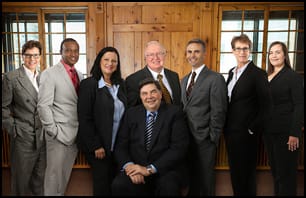“Mark of the Beast” hand-scanner costs employer $150,000 in religious accommodation lawsuit
Religious beliefs and practices may vary widely but an employer’s obligation under the law to accommodate those beliefs remains the same no matter how irrational or hard to understand those beliefs may be. This principle was demonstrated yet again when the Equal Employment Opportunity Commission (E.E.O.C.) won $150,000 at trial for an evangelical Christian coal miner who believed that an optical hand-scanner his employer required would imprint him with the biblical “Mark of the Beast.”
The plaintiff, Beverly Butcher, Jr., worked for 30 years as a coal miner for the defendant Consol Energy. In 2012 Consol began requiring its employees to clock in using an optical hand-scanner. Butcher informed the company that he believed the scanner represented the “mark of the beast” mentioned in the Book of Revelations (which prophesizes that “[the Beast] forced all people… to receive a mark on their right hands or on their foreheads, so that they could not buy or sell unless they had the mark, which is the name of the beast or the number of its name.”). Consol tried to convince Butcher that the optical scanner didn’t actually imprint anything on the users’ hands, but Butcher was unmoved. Consol also provided Butcher with a letter from the scanner’s manufacturer, suggesting that employees concerned about the Biblical ramifications of using the device should just use their left hands instead (because Revelations specifies that people will bear the mark only on their right hands) but no agreement could be reached between Butcher and Consol. Butcher retired in protest and complained to the E.E.O.C.
At trial, the E.E.O.C. successfully argued that Consol had failed to provide Butcher with an accommodation of his religious beliefs. Title VII of the Civil Rights Act of 1964 prohibits discrimination on the basis of race, color, sex and religion. As applied, this means that covered employers have an obligation to provide employees with reasonable accommodations for their sincerely-held religious beliefs, unless the accommodation would result in an undue burden for the employer. In Butcher’s case, the E.E.O.C. argued that the law did not require the employee’s beliefs to be rational – only sincere. The jury found that Butcher’s belief that the scanner represented a Satanic omen of the end of the world was sincere and awarded him $150,000. The court is still considering a further award for back pay, front pay and other damages.
Rather than focusing on whether an employee’s beliefs make sense, employers should work in good faith to find a reasonable accommodation. Also, consistency is key; any “undue burden” argument Consol might have made would have been undercut by the fact that it allowed other employees to use other methods to clock in and out – yet it forced Butcher to use the scanner he objected to.

